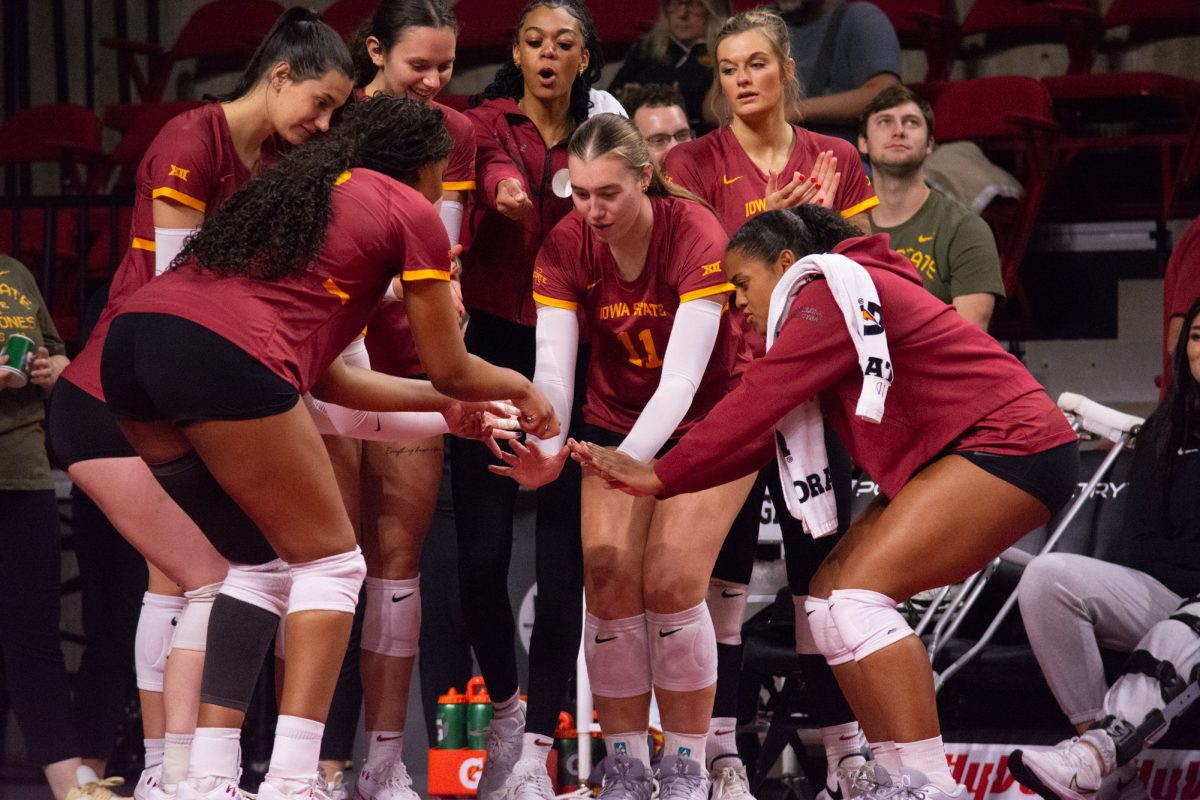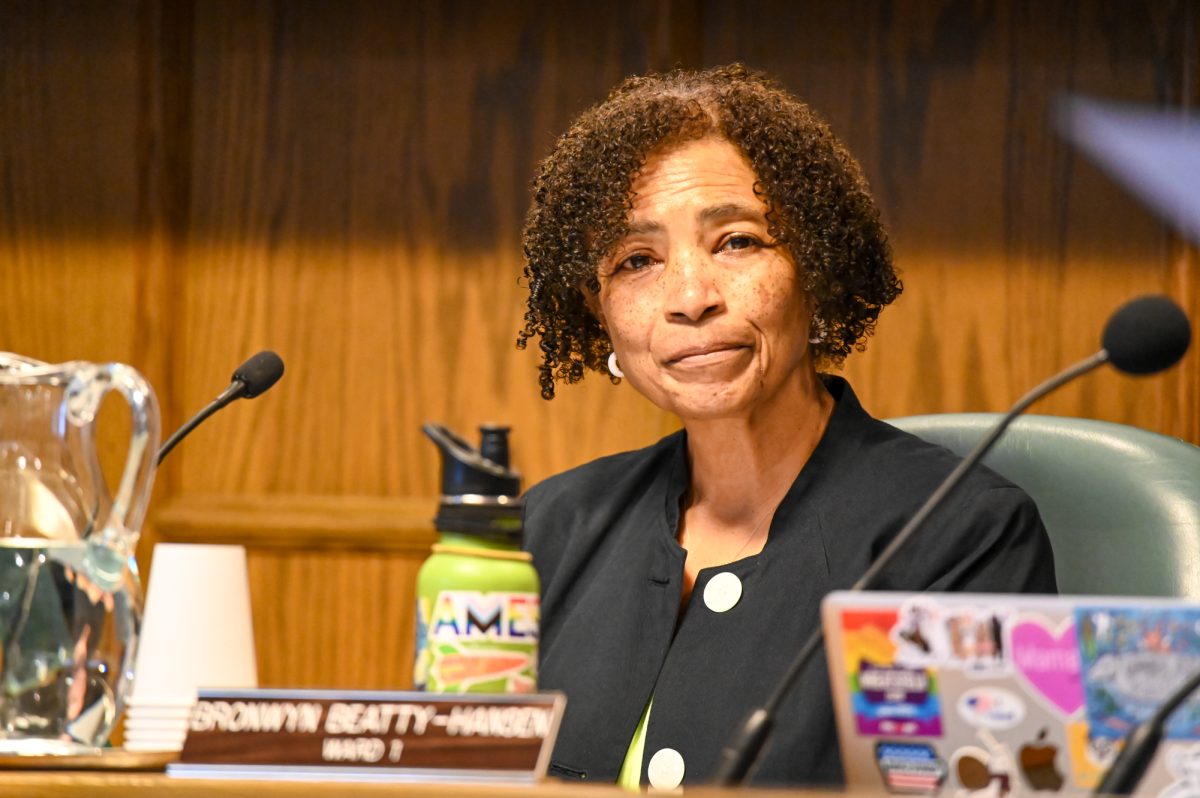COLUMN: Minority successes haven’t erased discrimination
September 21, 2003
In 1954, when the United States Supreme Court ruled separate but equal was unconstitutional and Plessy v. Ferguson (1896) was no longer the law of the land, for many African-Americans the phrase was, “Blacks in America have achieved freedom and full citizenship!” However, freedom did not come — neither did full citizenship come for the majority of African-Americans. But the realization did come that no one can give you freedom; freedom is something you must demand, as was so eloquently put by Frederick Douglas more than a hundred years earlier when he spoke these words: “Power concedes nothing without a demand — never has and never will.”
Realizing that Frederick Douglas was correct and after almost ten years of promises made without progress with regard to freedom, more than 250,000 people of all racial groups took their demands for freedom to the halls of Congress, as was demonstrated by the largest protest march at that time known to man — the 1963 historical March on Washington.
Now, 40 years later, the question remains: Are African-Americans (African-Americans are the benchmark by which America measures racial progress in this country) better off today than forty years ago? If you look for the answer using education as the benchmark, the glass is half-full rather than half-empty. But, regardless of what yardstick you use, neither parity nor equality has been achieved.
In 1950, the high school completion rate for white Americans was 36 percent while the high school completion rate for African-Americans was 14 percent.
If we fast-forward to the present we see enormous gains with respect to the high school completion rates of both white Americans and African-Americans, but the gap still remains. Today almost 89 percent of white Americans complete high school, while 79 percent of African-Americans complete high school.
As late as 1965, African-American enrollment in U.S. colleges and universities totaled only 274,000. As of fall 2001, more than 1.6 million African-Americans were enrolled in US colleges and universities.
While the aforementioned statistics are impressive, inequality still remains for African-Americans.
Today African-Americans are still the last hired and the first fired; they still have the highest unemployment rate, the highest incarceration rate, the highest death rate and the shortest life expectancy.
But this is not to say that progress has not been made. Today you see African-Americans with leadership roles in government, industry, television, radio, newsrooms, education and sports. Their achievements clearly send the message that African-Americans have truly put forth a Herculean effort in overcoming racism and Jim Crow laws to achieve limited respect and equality in America. And many have made and continue to make stellar contributions to the growth and development of America and the world.
However, their achievements — ever so outstanding and impressive — have not totally eliminated discrimination. If the underdevelopment of African-Americans’ talent is to improve, the right to a quality education must become a reality and not a dream, because a quality education has always been a pathway for African-Americans to improve life for themselves and life for their families. Unfortunately, a quality education from the very beginning has always been the one institution most denied African-Americans. Court case after court case has failed to provide an opportunity for all citizens to develop their talents to the fullest. From Brown v. Board of Education to Alan Bakke to the Michigan case, the debate continues.
But while this debate continues, progress is being made. So, on the 50th anniversary of Brown v. Board of Education and forty years after the historical March on Washington, we give special thanks to those individuals who had the courage, who made the sacrifice and who paid the ultimate price so that those of us who are now reaping the benefits of the choices they made can continue their legacy. As America pauses to commemorate these two historical events, we also take the time to give special thanks.
Thanks to Rosa Parks for taking a seat so that every black person in America could take a stand. Thanks to Charles Hamilton Houston, Thurgood Marshall and Dr. Kenneth Clark for putting together an educational and legal plan that won the Brown case. Thanks to W.E.B. DuBois, Carter G. Woodson and E. Franklin Frasier for giving legitimacy to black scholarship. Thanks to Asa Phillip Randolph for organizing the March on Washington. And thanks to all of the people who, on a hot day in August 40 years ago, came from every small town, every large city, every township, every slum and every ghetto to send one message: Injustice in America must end and it must end now!
As we enter the new millennium, facing new challenges and opportunities, the achievement of racial equality must become the number one domestic priority. Whatever it takes we must do, now more than ever — we cannot allow any segment of human talent to go undeveloped or underdeveloped. If America is to have the human resources we need to compete in the world marketplace, we must come to grips with the fact that high ability is too randomly given for us to believe that any one segment of the population has a monopoly on it — it lies everywhere and it must be developed.
The price that we pay for racial hate, segregation, and discrimination is much too high. If we end it now, we will pay enormous dividends to ourselves and our children.
For those of us who had an opportunity to witness and/or participate in these historical events, we must now assess whether or not we have done and continue to do all that we can to ensure to the children and grandchildren of all the people who made the maximum sacrifice that their children will not grow up in an America that is separate and unequal.






